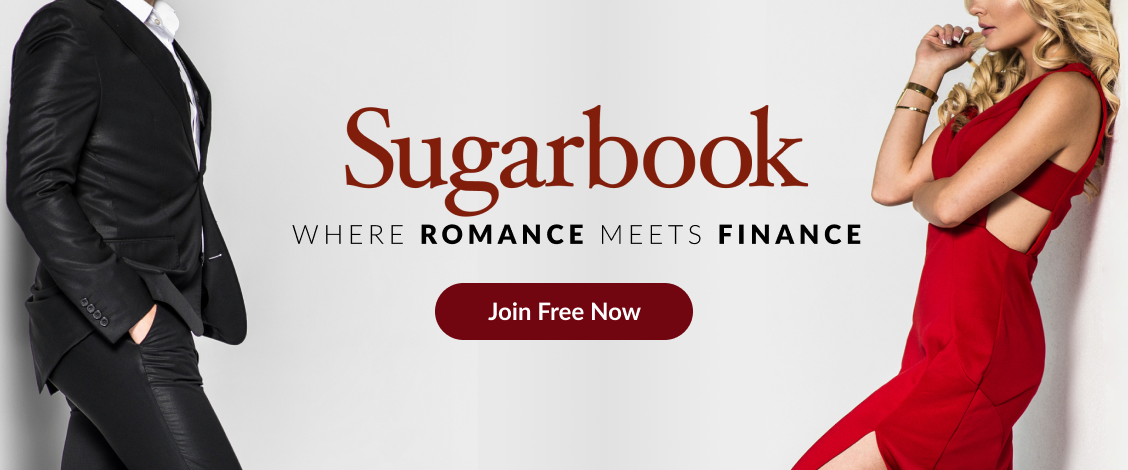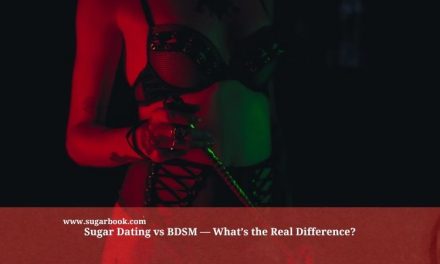
Meet successful sugar daddies and confident sugar babies on the world’s leading sugar dating app. Join free today.
📌 Editor’s Note (Updated January 2026): As the premium dating landscape in the United States evolves, understanding specific relationship archetypes is essential for maintaining transparency. This guide has been fully audited for 2026 to explore the Daddy Dom dynamic within the context of honest & beneficial relationships.
2026 TL;DR:
- A Daddy Dom is a relationship archetype focused on a partner who provides emotional leadership, guidance, and protective care within a consensual dynamic.
- In elite dating, this role prioritizes emotional intelligence and stability over purely transactional metrics.
- While different from a standard provider role, these dynamics can successfully merge when built on an agreed arrangement.
- Success in 2026 depends on upfront honesty to ensure every connection is benefiting for both parties.
Contents
What is a Daddy Dom? Understanding the 2026 Archetype
In the modern world of high-caliber connections, the term “Daddy Dom” is gaining significant attention, especially within the elite dating scene in the United States. While the term originated in specialized subcultures, today it describes a sophisticated emotional archetype centered on leadership, care, and the establishment of an honest & beneficial relationship.
As we enter 2026, the premium dating scene is no longer defined by surface-level assumptions. With verified dating platforms like Sugarbook offering structured and respectful environments, understanding terms like Daddy Dom is increasingly relevant for those seeking a beneficial connection in hubs like NYC or Los Angeles.
But what exactly does this role entail in 2026, and how does it differ from a traditional Sugar Daddy in the United States? This report dives deep into the concept, clarifies the emotional expectations, and explores the standards you should consider before establishing an agreed arrangement with this archetype.
What is Daddy Dom meaning
By default its core, a daddy dom is refer to a dominant partner, usually for male, which who combines authority and nurturing in a consensual relationship. So this term stems from BDSM dynamics is broader than just sexual control. It more focuse on trust, emotional care, structure, and often mentorship.
The Core Characteristics
Daddy dom exhibits dominance, but not through aggression. Instead, it’s all about stability, leadership, and offering a safe emotional framework. Usually they may create boundaries, offer discipline (when consensually agreed), and also provide with emotional support, guidance, and affection.
- Leadership emotional and relational decisions
- Deep care and concern with their partner’s well-being
- With a protective, mentoring presence
- With emotional depth and secure attachment
- With Emotional and Psychological Aspects
Today daddy dom meaning goes beyond the label; It involves with a unique balance of power and care, where the dominant partner fosters growth, confidence, and emotional security with their submissive counterpart. The core dynamics are rooted in mutual respect, clear consent, and shared values.
The core different of Daddy Dom vs Sugar Daddy
One of the most common points of confusion is the difference between a daddy dom and a sugar daddy. While usually both may present themselves as older, established men offering support, their intentions and relationship structures are distinctly different.
Material Support vs. Emotional Authority
By core sugar daddy typically defined to offers financial support or lifestyle benefits in exchange for companionship. It’s a very straitforward with and beneficial for both sides often facilitated through platforms like Sugarbook. However, a daddy Dom is less about material exchange and more about emotional structure, power dynamics, and nurturing leadership.
While a sugar daddy may be generous and emotionally available, his role is not inherently dominant or control-based. The daddy dom, by contrast, centers his identity around emotional dominance mixed with care.
The Boundaries and Consent
Both relationships thrive on boundaries, but the nature of those boundaries differs. Usually a sugar relationship might include agreements on allowances, dates, or exclusivity. A daddy dom relationship will dives into emotional authority and structured interactions, often with an a layer of power exchange, discussed in-depth before proceeding.
Once the line becomes clear: Sugar daddy often focuses on financial empowerment, while a daddy dom thrives in emotional or psychological realms and with a agreed framework of consent and care.
Why the Daddy Dom Role Is Misunderstood
Despite its growing popularity, the term daddy dom is widely misunderstood. From social media memes to misinformed conversations, the nuance of the role often gets lost in exaggeration or confusion with toxic behaviors.
Confusion with Toxic Masculinity
Many mistake a daddy dom for a controlling or emotionally manipulative man. But true dominance in this context doesn’t mean dominance over someone’s life or choices. It means consensually leading with empathy, strength, and emotional maturity.
A genuine daddy dom doesn’t belittle, guilt-trip, or gaslight. He respects the emotional safety of his partner, offering structure in ways that build, not break trust.
Media Influence
TV shows, erotic novels, and social platforms often paint a one-dimensional picture of dominant partners—hyper-sexualized, emotionally distant, or power-hungry. This misrepresents the reality of a healthy daddy dom relationship, where intimacy and authority are balanced by kindness, trust, and mutual care.
Should Sugar Babies Engage with a Daddy Dom?
So where does the daddy dom meaning intersect with sugar culture? And should sugar babies consider exploring this dynamic?
When It Works
For some sugar babies, engaging with a daddy dom can be deeply rewarding. When both parties value emotional structure, mentorship, and honesty, the relationship can offer not just lifestyle support, but personal growth, emotional stability, and trust.
A sugar baby who thrives in guided relationships, enjoys structure, or seeks strong emotional leadership may find compatibility with a daddy dom. Platforms like Sugarbook allow users to filter for personality traits, making it easier to find partners who align with these values.
When to Be Cautious
However, labels can be misused. If someone self-identifying as a daddy dom pressures you, disrespects boundaries, or uses dominance as a mask for control, it’s a red flag. Healthy dynamics must be based on informed consent, mutual respect, and clear communication.
Sugar babies should enter any dominant-submissive dynamic with knowledge, clear boundaries, and personal agency. Tools provided by Sugarbook – like profile preferences, chat moderation, and reporting features, help ensure your experience remains safe and empowering.
Conclusion: Redefining Relationship Archetypes in 2026
The Daddy Dom meaning in 2026 has evolved beyond simple stereotypes. Within the premium dating landscape, it represents a sophisticated archetype where emotional strength meets protective leadership, and structure is balanced with genuine care. It is a connection designed for those who value stability and clear boundaries.
While not every member will seek a Daddy Dom dynamic, for those who prioritize emotional grounding and professional mentorship, these connections can be incredibly fulfilling. They offer a unique way to experience an honest & beneficial relationship based on total transparency.
Through verified platforms like Sugarbook, members can safely explore these dynamics, define their own lifestyle standards, and connect with partners who genuinely value consent, clarity, and an agreed arrangement.
💡 2026 Archetype Takeaways
- Distinct Roles: 2026 standards differentiate between purely lifestyle support and emotional leadership archetypes.
- Strategic Alignment: Successful connections focus on shared lifestyle goals and clear expectations within an honest & beneficial relationship.
- Consent-First: Every aspect of an agreed arrangement should be discussed openly to ensure the connection is benefiting for both parties.
- Clarity is Key: Upfront communication regarding boundaries is the primary way to build a respectful and healthy connection.
1. What does Daddy Dom mean in the 2026 US market?
It refers to a protective partner who combines emotional leadership, structure, and care within a consensual honest & beneficial relationship.
2. How is this dynamic different from a traditional Sugar Daddy?
While a Sugar Daddy in the United States often focuses on financial and lifestyle support, a Daddy Dom emphasis is on emotional authority, guidance, and mentorship.
3. Can a partner overlap these elite dating roles?
Yes. In 2026, many successful members blend these roles, providing both lifestyle support and emotional leadership within an agreed arrangement built on transparency.
4. Is the Daddy Dom role strictly about power dynamics?
No. In the context of premium dating, it is a lifestyle dynamic built on deep trust and mutual respect, designed to be beneficial for both sides.
5. What should new members know before exploring this archetype?
Be clear regarding your lifestyle expectations, establish secure boundaries, and ensure the level of emotional care aligns with your goals for a beneficial connection.
Continue Your 2026 US Market Research:














